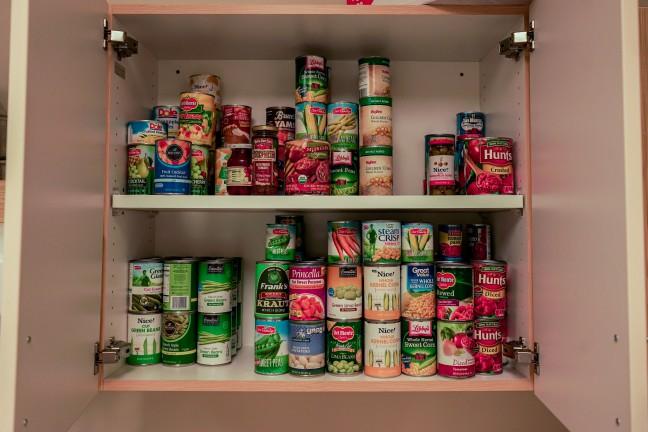One in five students in the U.S. identifies as food insecure every year. That number triples for students of color and first generation students.
Local studies by University Health Services confirm that the University of Wisconsin is no different — we have a huge food insecurity problem and not enough people are talking about it. Every day, students in our classes struggle to focus during lecture, are distracted by growling stomachs during exams and are faced with low energy, haunted by the effects of food insecurity.
When I was a freshman at UW, it never occurred to me that food insecurity could be an issue on this campus. I knew money was tight for many, but that seemed typical for college students. I, too, often chose the cheaper pizza or ramen options over the more expensive, healthier options, but I assumed everybody went through that. Ramen and pizza — part of the normal college experience.
Soon after arriving to campus, I got involved in the Associated Students of Madison student government and was granted the opportunity to work on a wide range of issues such as mental health, public transportation, alcohol safety and textbook affordability. I was overwhelmed by the sheer number of student issues to pick from and each issue felt like the biggest, most important one. How do you pick just one problem to try and solve? Mental health, affordability, safety on campus — each one affects so many students in such different ways on a daily basis.
‘I can’t eat!’ UW students, organizations reckon with ending hunger at UW
But it wasn’t until my junior year, when I got involved with The Open Seat, ASM’s food pantry, that I learned about an issue that rarely seems to be talked about outside of the pantry’s walls: food insecurity.
My passion around the issue of food insecurity and my concern about its lack of attention stems from the fact that food insecurity has been proven time and again to be a key intersection issue. Food insecurity has been linked to mental health issues, low academic performance, chronic diseases and increased poverty rates in post-graduation. Think about it — when was the last time you were able to study, be with friends or work at a job when you were hungry?
Through my work at The Open Seat I’ve seen the extent of this issue firsthand. Hundreds of students and community members come to The Open Seat every week for food, personal care products and fresh produce. More often than expected, they come with spouses, family members and even children.
I’ve also seen the power of UW students and the university to address nationally systemic issues as they manifest on our campus. Through funding from ASM, we’ve been able to support dozens of students and children, and through collaboration with other student organizations like Slow Food and the Food Shed, we’ve been able to raise more awareness and provide additional opportunities for students to receive food.
Letter to the Editor: Students have a lot on their plates — but not enough food
But with such a deeply ingrained issue across the country that affects every aspect of a student’s life, there is always more we can do.
The Food Recovery Network, a UW student organization, receives leftover food from dining halls and donates them to The Open Seat. The Campus Food Shed brings leftover food from Fresh Market and gives it to students at the Student Activity Center. While this effort is great, more volunteers and increased funding could be the difference of a few leftover items from Gordon Dining Hall and dozens of leftover options from dining halls across campus.
Allowing student and community leaders to speak about The Open Seat and other food options at required programming such as SOAR or Our Wisconsin could ensure every single first-year student knows the options available to them. Training house fellows on accessible food options and teaching them to spot signs of food insecurity could make the difference between a few students finding support and hundreds.
Creating university policies that dining halls, unions and Badger Markets must donate leftover food can help not only reduce food insecurity but also reduce food waste on campus.
The biggest and hardest method to address this issue is to break the stigma and normalize the fact that there are still food insecure students on this campus and that as long as there are, there will be resources for them.
Statistically, you probably know a few. Making sure students feel comfortable talking about struggles like these is the only way we can ensure they get the support they need. Talking about this issue at dorm floor meetings, classes, org events and anywhere else can help reduce the stigma students feel about food insecurity. Someone once said at The Open Seat, “I know food insecurity is not something to be embarrassed about, but I just am.”
Recognize the signs of food insecurity, create welcoming spaces for students to share their struggles, volunteer your time to support food pantries if you can and make sure the issue is being heard.
Yogev Ben-Yitschak ([email protected]) is a senior majoring in marketing. He is also the Open Seat External Director. For Open Seat locations and hours, and for ways to support the Open Seat, visit https://www.asm.wisc.edu/theopenseat/ or email [email protected].





















